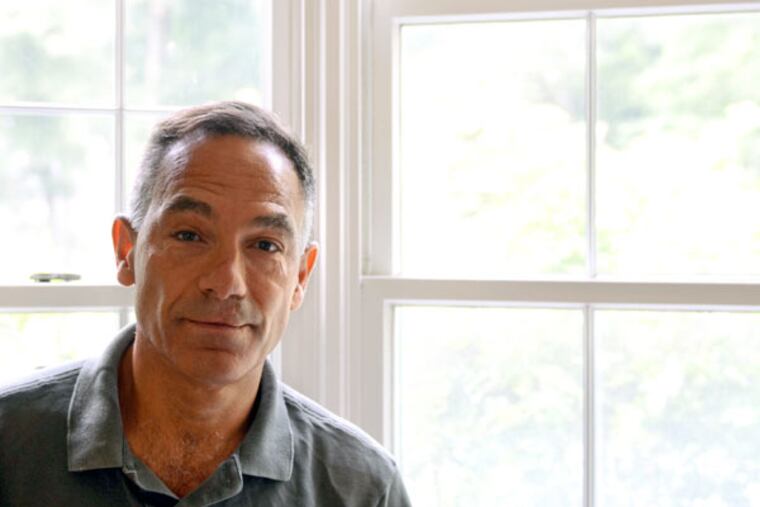Whistleblower's expert says Vanguard owes billions in back taxes
A tax expert retained by former Vanguard Group tax lawyer David Danon in his whistle-blower complaints against the mutual fund giant has sent the IRS a report estimating the company's unpaid federal income tax liabilities at $34.6 billion from 2007 to 2014.

A tax expert retained by former Vanguard Group tax lawyer David Danon in his whistle-blower complaints against the mutual fund giant has sent the IRS a report estimating the company's unpaid federal income tax liabilities at $34.6 billion from 2007 to 2014.
"If the IRS were to pursue this matter, it will prevail in court," wrote Reuven S. Avi-Yonah, law professor at the University of Michigan Law School, in his report.
Malvern-based Vanguard, the nation's largest mutual fund company, "has no legal justification" for charging its mutual funds artificially low management fees that reduce its reported profits and tax obligations, Avi-Yonah wrote. And Vanguard failed to pay taxes on a $1.5 billion "contingency reserve" set aside from investors' funds, he added.
Vanguard executives have reviewed a copy of the report. "As we've stated previously, we believe the case is without merit and decline to comment further," company spokesman John Woerth wrote.
Several experts said the firm may have a problem, but any penalty would likely be far less than $34.6 billion.
In a February hearing on one of Danon's complaints in a state court in New York, Vanguard said Danon, as a company attorney, had no right to use inside information in making a complaint against his employer. Danon denied violating ethics rules. The judge has not ruled on Vanguard's motion to dismiss Danon's state complaint.
Danon also filed complaints on Vanguard's tax practices to the IRS and the Securities and Exchange Commission, which decline to comment on cases that may be under investigation. Danon's legal team says he has met with both agencies about his allegations and that they are reviewing Vanguard's tax practices.
Vanguard has not confirmed an investigation.
Avi-Yonah, who has also taught tax law at Harvard and the University of Pennsylvania, is a veteran of 25 years of tax law at major New York, Washington, and Boston law firms. He has advised the U.S. Treasury and international agencies on tax matters, and has testified on major corporate tax cases before Congress. "He's a big deal. Very bright guy," said Lee Sheppard, a tax lawyer and contributing editor to Tax Notes, a Washington tax journal, who has found merit in the questions Danon raised about Vanguard.
"It seems like a pretty clear-cut case," said Robert Willens, a prominent New York business tax attorney, after reviewing highlights of Avi-Yonah's report. "I know Vanguard says they have meritorious defenses and special circumstances that might excuse them. But the principle in law is that they have to deal with their funds at arm's length," and the funds must pay Vanguard's management company fees as if they were paying an independent contractor, not a special low price, Willens said.
Vanguard has grown to be the largest mutual fund company, with almost 20 percent of the industry's assets, in part by attracting investors with low fees.
Danon says Vanguard has been able to charge lower fees by underpaying its income taxes. While other companies that pick securities and do specialized work for mutual funds charge high fees, Vanguard executives have said their company provides similar services to its mutual funds "at cost," not taking a profit, and passing on the savings to investors.
Danon noted that Vanguard is a for-profit company, and is bound by the same basic principles of federal tax law as other companies, which do not allow companies to charge artificially low prices for services done by affiliates. Otherwise it would be too easy to use internal pricing to move profits out of higher-tax countries like the United States to lower-tax countries, as some major manufacturers have been accused of doing.
Philadelphia lawyer Sheldon Bonovitz, chairman emeritus of Duane Morris L.L.P., said that even if Vanguard were to owe more taxes, by the time it's all lawyered over - "and Vanguard will have great lawyers" - a negotiated settlement would be way less than $35 billion.
"Generally, in transfer pricing, you do have to use the arm's-length standard: You have to pay arm's-length fees to affiliated taxpayers," Bonovitz said.
The government would have to prove Vanguard and its mutual funds are affiliated, he said: "How much of a mutual fund does Vanguard own? If they decide they are affiliates, you still have to define what is the [real] cost of these services. How much is the understatement? Instead of $35 billion, they could end up with some smaller number."
Avi-Yonah, who is charging $850 an hour, calculated damages based on Morningstar Inc.'s estimates of mutual fund expenses for the industry, including Vanguard's relatively low-fee funds. That makes his estimate conservative, said Danon's lawyer, Stephen Sorensen.
Even so, Vanguard will have arguments in its defense, which it has not yet made public. And it's unlikely the IRS would drive Vanguard out of business, said Willens.
"I think they'd come up with a settlement," he said. "Vanguard would presumably pursue this to the courts and the IRS would likely end up negotiating a deal that wouldn't be so large as to put the company out of business."
Still, future Vanguard fees would "absolutely" rise, Willens said.
215-854-5194@PhillyJoeD